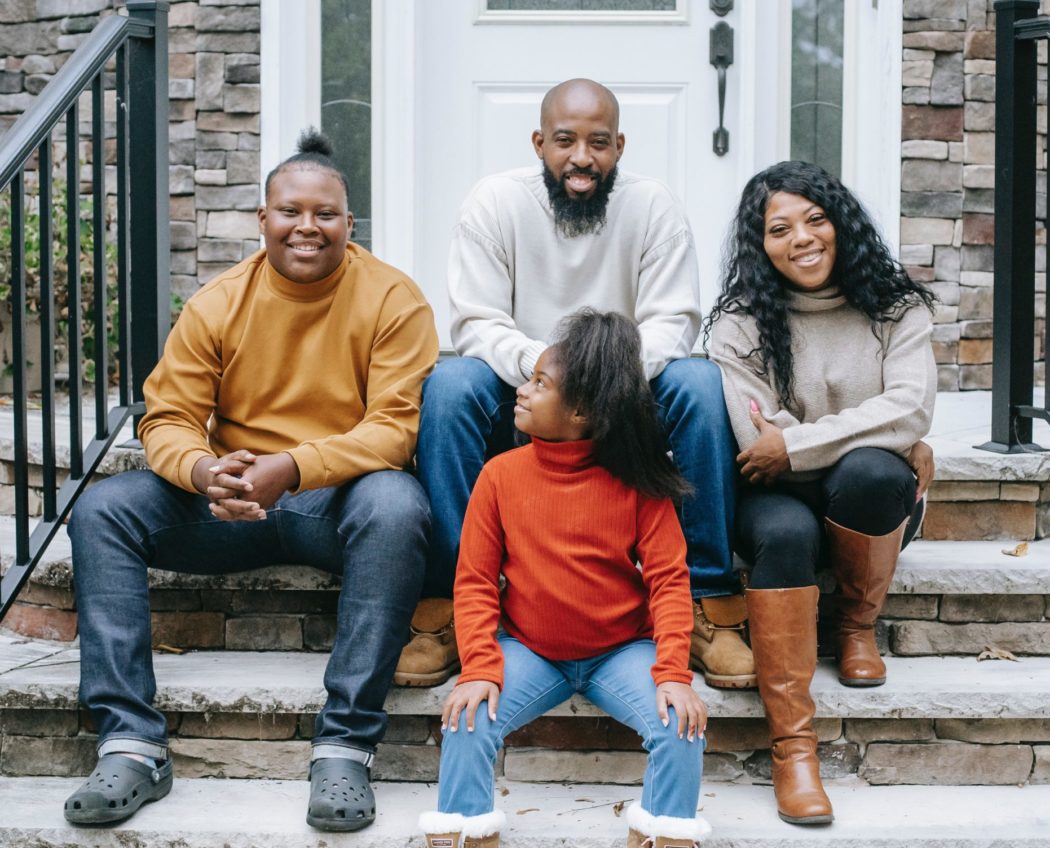Regardless of your kid’s age, the “sex talk” is always going to be… interesting. And maybe even awkward. You may not know what all to cover or how to cover it. You might not be able to answer all of their questions.
But throughout the discussion, I encourage you to remember this key piece: Whether or not you think your child is LGBTQIA+, they need queer-positive sex education.
WHY IT’S SO IMPORTANT
 First, your child may identify as LGBTQIA+ even if they haven’t said so. In fact, they may not even know it yet!
First, your child may identify as LGBTQIA+ even if they haven’t said so. In fact, they may not even know it yet!
According to a Gallup poll, Generation Z (aka, people born between 1997 and 2002) is the queerest generation so far.
Whether you support queer issues or not, your child’s health is at stake if they choose to have sex later on. And unfortunately, you can’t rely on your kid’s school to do the work. Only 29 states require sex education, and even they often leave out LGBTQIA+ information. Statistically, fewer than five percent of LGBTQIA+ students had a sex education class that included queer topics. Possibly even worse, only 13 states require the education to be medically accurate.
Yeah, it’s bad.
As a result, some students are turning to the internet for safe sex tips. And, as I’m sure you know, the internet is full of false and harmful “information.” So obviously, without being taught how to have sex safely, LGBTQIA+ people are at a higher risk for STIs, unhealthy relationships, and more.
Studies suggest having these conversations with your child can delay sex and lead to safer choices. In other words, it’s time.
HOW TO HAVE QUEER-POSITIVE SEX ED WITH YOUR CHILD
We turned to experts for tips on how to host this conversation in an effective, respectful, and nonjudgmental way. Here are their suggestions:
MAKE IT RELATABLE
To make the conversation both educational and positive, give examples of queer representation in media. “Even discussing a TV show your child may be watching can help open up conversations on diversity,” said Ness Cooper, a clinical sexologist who’s trained in youth relationships and sex education (RSE). “If there are queer relationships in the show, chat about those together, but also try and talk about the show as a whole, too.”
Need examples of what to screen? Romper has a list of LGBTQIA+ friendly TV shows to watch with your kids and Screen Rant has a list for teens.
REMOVE GENDERED LANGUAGE
Avoid terms like “a man’s reproductive system” or “a woman’s vagina” to be more trans-positive. “Aim for being descriptive, like ‘people with vulvas or penises,’ ‘people who menstruate or have periods,’ ‘pregnant person [or] people,’ for instance,” said Cindy Luquin, a certified sex educator. “It equips kids and teens with the language to describe and explore their own body, gender identity, [and] sexuality. As well as not making assumptions about others and becoming confident advocates for their own health as they grow up.”
ASK YOUR CHILD WHAT QUESTIONS THEY HAVE
Not sure where to start? Let your kid do that for you. “It’s quite easy to think we’re giving our children the knowledge they need, but letting them take the lead with the questions can not only help them pay attention, but will address the areas they are most interested in at the time,” Cooper explained. “Because the questions they have may change over time, make sure they’re aware that they can ask further questions in the future, too.”
And while they ask questions, try to avoid appearing awkward when responding. This will help them feel safer asking the important questions and realizing sex and bodies aren’t things to be ashamed of.
PLAN ON HAVING SEVERAL SEX TALKS
Yep, it’s not a one-and-done thing. “Sexuality is too broad and ever-evolving, just like your growing child,” Luquin said. “Therefore, having several sex talks and incorporating them into daily life makes it normal and helps you and your kid/teen become comfortable with practice… It’s a win-win.”
Talk not only about sexuality as a broad topic, but about actual sexual health information, too. How can your child have safe sex with someone who has the same genitalia? Or different genitalia? And so on and so forth.
TALK ABOUT THE COMPLEXITIES OF GENDER EXPRESSION
Gender expression, or the external appearance of gender, is an important piece of sex education. “If you’re struggling to talk about gender, look up the Genderbread worksheetor similar activity sheet, and do that together,” Cooper suggested.
BE OPEN AND HONEST
“Most parents want to be a support system to their children. That starts with building trust and vulnerability,” Luquin said.
If you can’t answer all of their questions, that’s OK. Let your child know. “It demonstrates that you, the adult, have a growth mindset and can figure it out… That they can reach out to you for support when needed.”
You can be an important role model to your child by showing the importance of continuing to educate yourself on these topics.
All in all, remember having respect for your child and others is key. Luquin put it like this: “Queer-positive sex talks demonstrate that you not only respect all genders and sexualities, but the message is very clear that you respect your child as a person.”
For North Carolina-based queer sex education resources, check out SafeSchools NC and Shift NC.
This article was originally published on January 14, 2022.
 Ashley Broadwater is a recent graduate of UNC-Chapel Hill, where she studied Public Relations in the Hussman School of Journalism and Media. She’s passionate about mental health, body positivity, relationships, Halloween, and Dad jokes.
Ashley Broadwater is a recent graduate of UNC-Chapel Hill, where she studied Public Relations in the Hussman School of Journalism and Media. She’s passionate about mental health, body positivity, relationships, Halloween, and Dad jokes.

There are no comments
Add yours